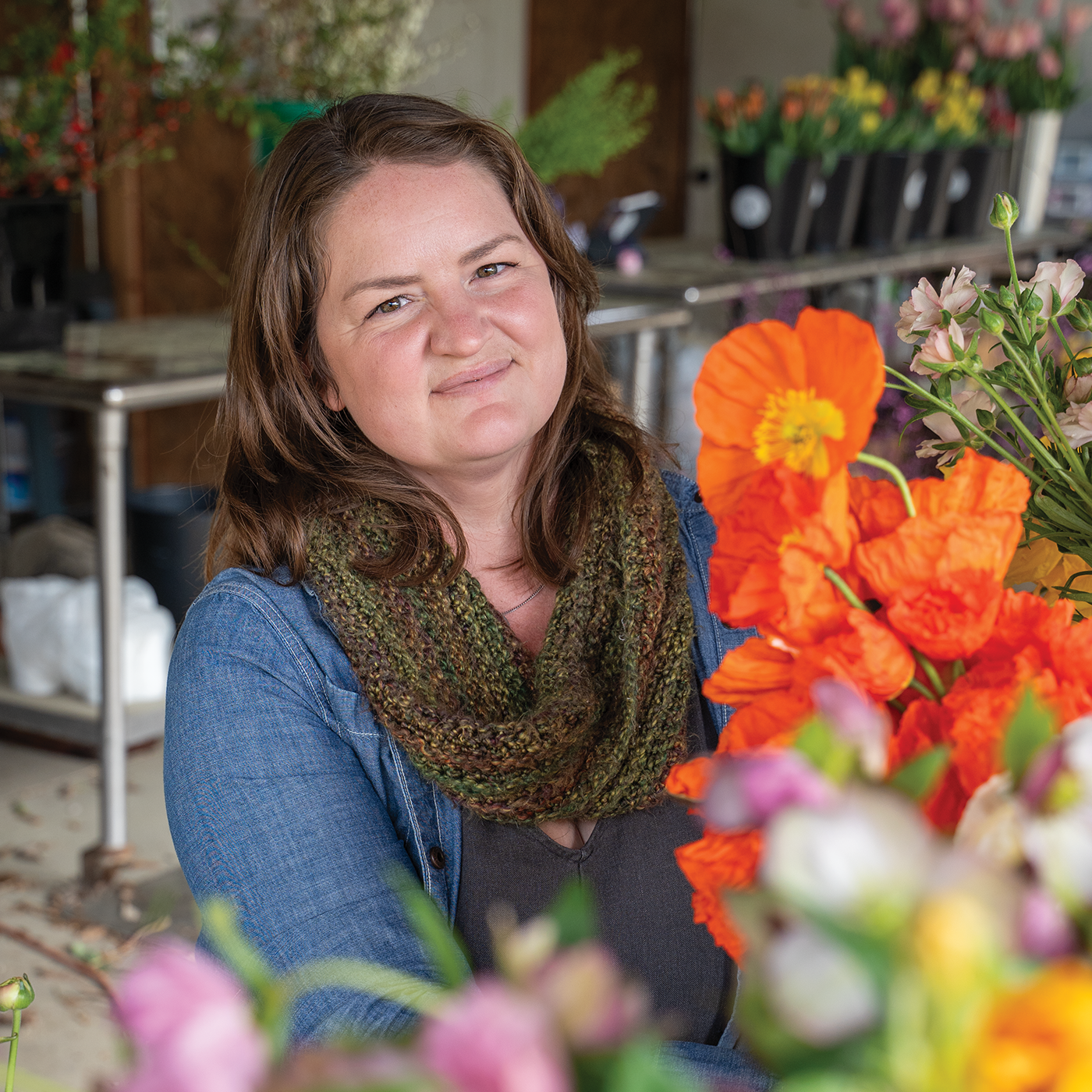
Campus & Community
Should I kill my lawn?
Amanda Montgomery (B.A.’09) offers an alternative to all that green turf
Do you ever just wonder about stuff? Something obvious? Frivolous? Serious? Completely esoteric? We do. In One Last Question, we ask an expert from the VCU community to help us learn a little more about anything. In this issue, we ask: Should I kill my lawn?
One day back in 2015, Amanda Montgomery (B.A.’09) sat on her porch swing, stared out at her front yard in suburban Richmond and decided it wasn’t living up to its potential.
At the time, she was working as a garden education coordinator for a local community center, teaching kids about growing vegetables and protecting pollinators, and she decided her yard should reflect what she was teaching her students. So Montgomery ripped out the grass and planted culinary herbs.
“Lawns are useless,” Montgomery says, speaking environmentally and invoking a decades-old movement toward natural lawns that are more than decorative. “They provide little to no habitat or nutrition for wildlife, and the equipment and chemicals used to maintain lawns have a negative impact in a world that faces population declines among insects, birds and other wildlife. So I think everyone should do as much as they can to get rid of their lawns.”
Ripping out her yard in Bon Air led Montgomery to found the Hummingbird Flower Co., which relocated to Beaverdam in 2022, about 40 miles north of Richmond. There, in a half-acre field, she grows 35 to 40 varieties of cut flowers, all picked within 24 to 48 hours of sale. (Most flowers sold in the U.S. are shipped from South America.) Montgomery’s also a co-founder of the River City Flower Exchange, a Richmond-based wholesale and retail market which she and seven other growers cooperatively own.
“I started my business in my front lawn,” says Montgomery, who majored in global studies and international social justice studies in VCU’s School of World Studies. “It came out of conversations about: What can a front yard be? Like, can we rethink just having grass or an ornamental bush or something like that?”
American lawns as we know them came of age in the post-World War II housing boom, and now cover more than 40 million acres of U.S. land, about 1.7% of the country. That’s larger than the state of Georgia.
While lawns can function as “carbon sinks,” soaking up carbon dioxide, most grass species we plant are not native to the U.S. and therefore poorly adapted to our climates and soil. Lawns use a lot of water, and fertilizer chemicals can be toxic to wildlife, notably insects and birds. Fertilizer run-off pollutes waterways, while gas-burning mowers hurt the ozone layer, and a lawn’s lack of biodiversity means it's more vulnerable to pests, necessitating pesticides. Weed-suppressing herbicides actually kill beneficial plants like violets, which are native to more than half of the U.S. and serve as a host plant for butterflies and bees.
So how does one go natural (if they’re inclined to do battle with their HOA) and not spend thousands of dollars ripping out their yard?
“I just tell people to throw some cardboard down in a spot and kill the grass there and start there,” says Montgomery, who’s still “cardboarding” her front yard. “It looks crappy right now because it’s just cardboard in my front yard, but I don’t care. It’s not — and it doesn’t have to be — a big area. … If you don’t like the look of cardboard, you can cover it with mulch or you can use a landscape fabric or a tarp if you want to be a little more refined.”
Instead of grass, Montgomery suggests native plants. In central and eastern Virginia these include rudbeckia (black-eyed Susan) and Joe Pye weed. Clover, though not native to the U.S., is a food source for many animals, thus also a good choice. Plants like these help create a haven for pollinators and endangered species, like monarch butterflies, and because native plants are adapted to local climate and soil, natural “lawns” require less maintenance.
“You can start small,” Montgomery says. “You don’t have to go full-on with this at all. … One time on my birthday, I put on Instagram [that] my wish is for everybody to put one cardboard box down in their yard and kill that much grass and plant something there instead.”
